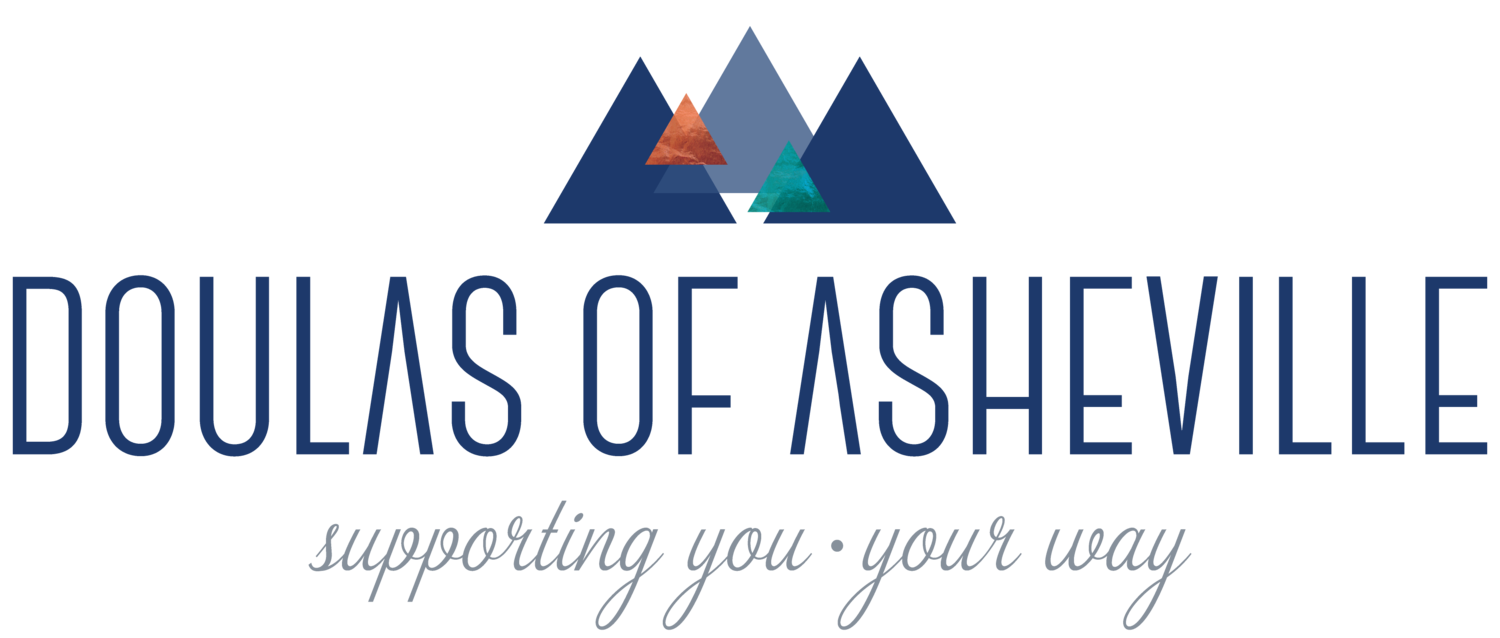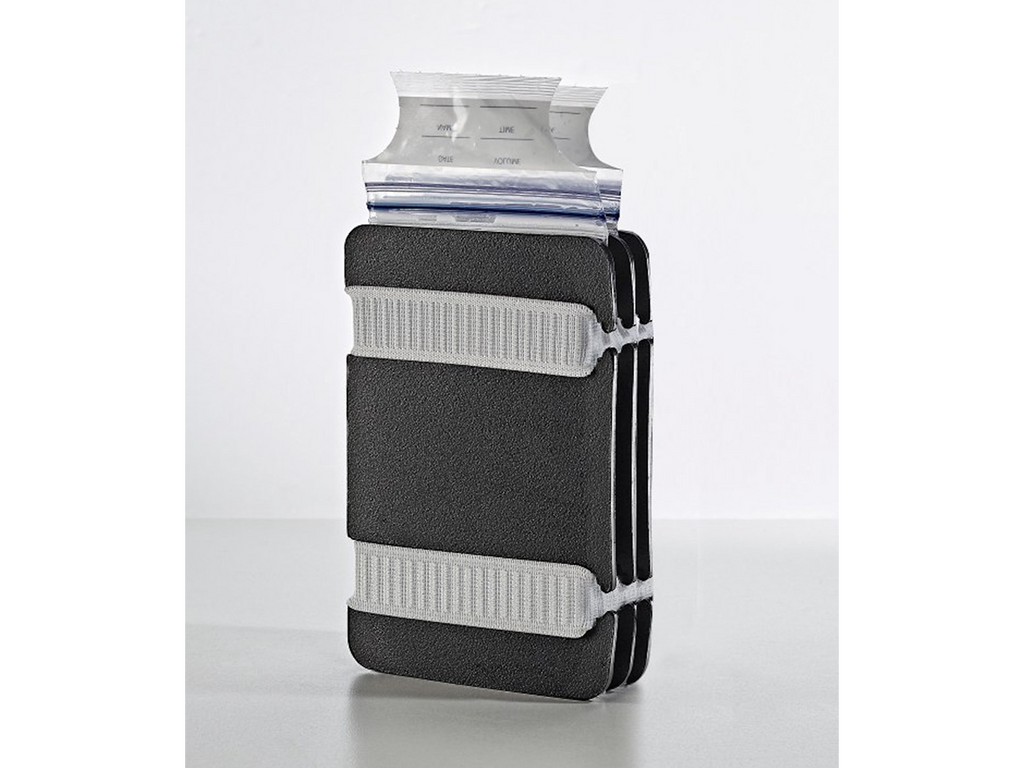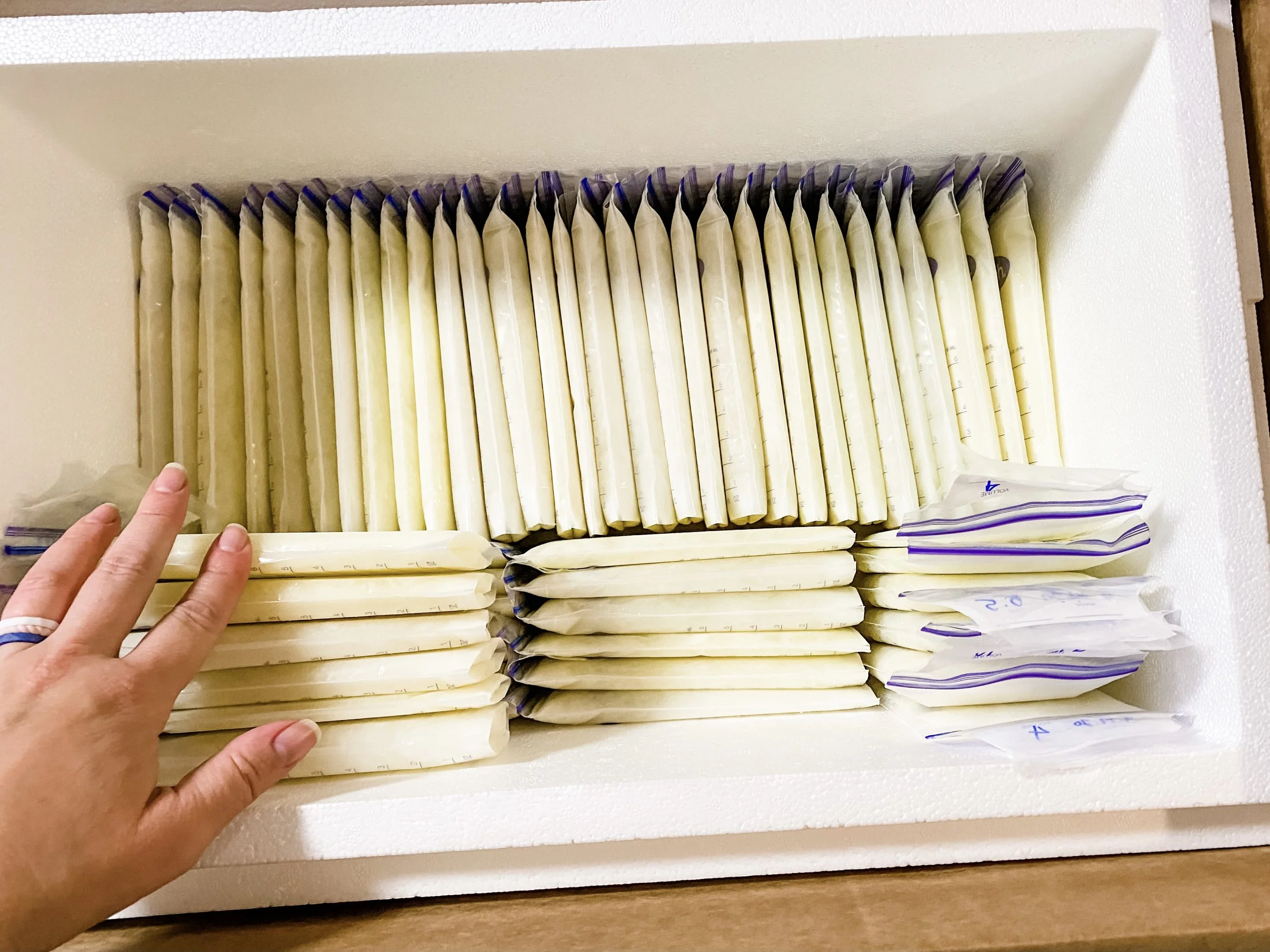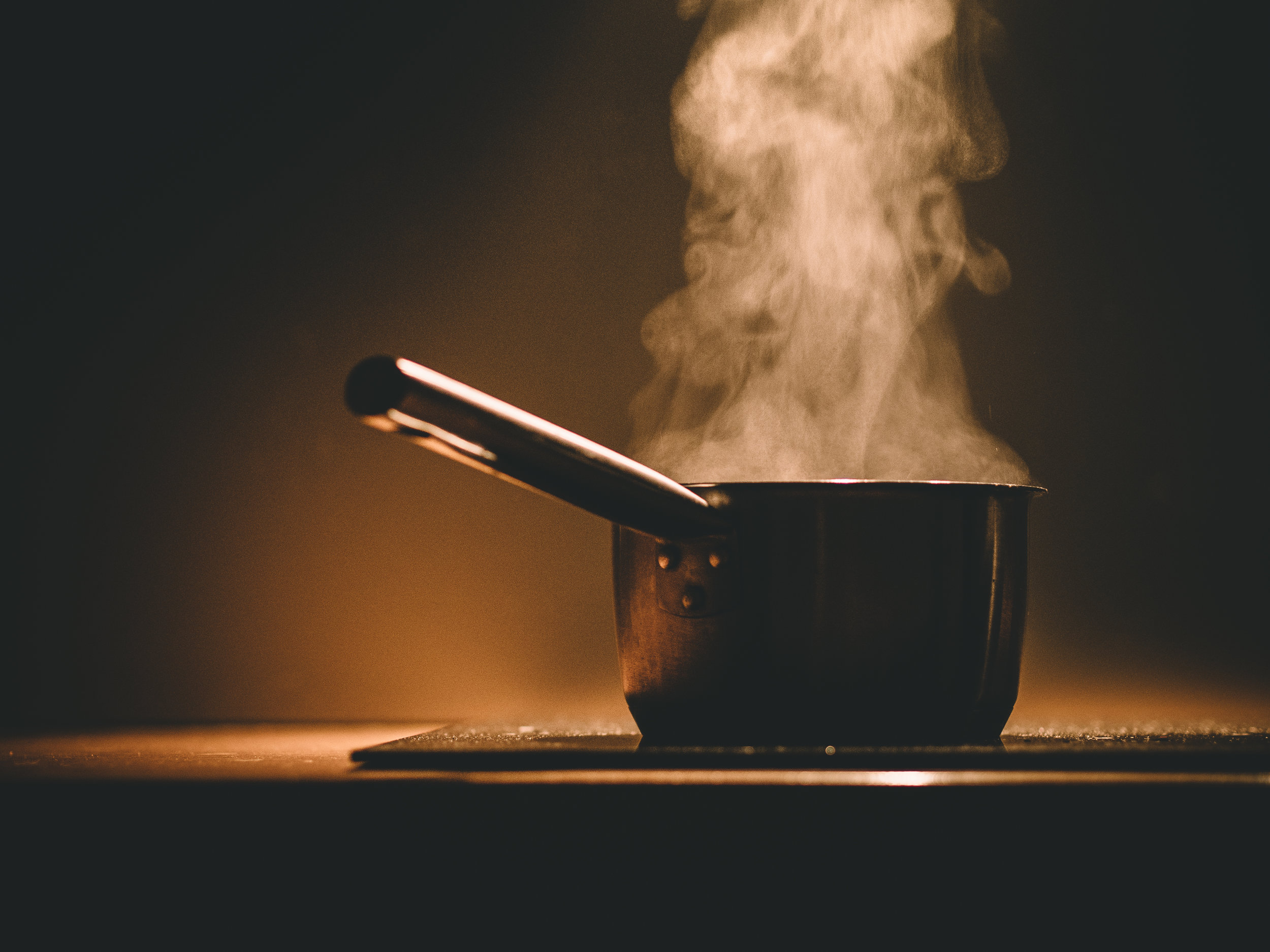Let’s face it, pumping can really suck! We wanted to share just a couple of our favorite products and tips to help make it suck a bit less so you can enjoy your baby a bit more…
Now, we are assuming you have the basics like a double-electric pump. Pop over to this blog to see what we think about which breast pumps are best.
HAAKAA STYLE PUMP
This soft silicone “milk catcher” can be wonderful in two scenarios in particular: 1) if you are breastfeeding your baby and find you are leaking on the side baby is not feeding from. Pop the Haakaa on and collect all that otherwise lost milk! This can be really helpful for increasing your stash a few ounces at a time without having to add additional pumping sessions. or 2) if you find yourself leaking a lot in the shower, just out of the shower, or you are struggling with oversupply and need to take the pressure off without doing a full pump.
FREEZE-IT-FLAT
If you are an exclusive pumper you will learn quickly that optimizing storage of breastmilk bags is imperative. Storing milk bags flat can help you save LOTS of freezer space and keep your stash nice and organized. Even if you aren’t an exclusive pumper, you’ll want to keep any excess milk neatly organized and labeled so you know what you have and when it needs to be used. If you have loads of freezer space, you can use the cookie sheet method to freeze several bags of milk flat all at once. But many folks don’t have that kind of space. That’s where Freeze-It-Flats come in super handy. Just place one (or two if you have the double size) bag(s) of milk between the device and place in your freezer. You’ll get perfectly flat bags that can easily be stacked or grouped together in gallon ziplock bags for easy storage. (There are imitation versions available on Amazon, but we’ve used both and prefer the original from Mammaway.)
HANDS FREE PUMPING BRA
A hands-free pumping bra is absolutely essential for exclusive pumpers, people who are pumping frequently because they are away from their baby for work. But even for parents who are primarily breastfeeding, a hands-free pumping bra can make the chore of pumping a lot easier and even more effective. The obvious benefit of using a hands-free pumping bra is you are able to carry on with other tasks like work, baby care, or fixing yourself a snack. You can also use a hands-free pumping bra to get the most out of your pumping session by using your hands to do breast massage during the pump. This can help move milk more effectively, especially if you find (like many pumpers) you aren’t able to express as much milk with the pump as your baby is able to remove through direct feeding.
We have two favorites in this category! The Simple Wishes bra is our favorite for pumping on the go, when you are away from your baby, and when you have a bit of privacy to be able to pump. We recommend wearing a normal nursing bra or tank and then putting this on one over top just during your pumping session(s). It’s not the best to wear throughout the day, although you could if you wanted to.
The Sublime Nursing/Pumping Bra from Kindred Bravely is our go-to for people who are doing a combination of nursing and pumping and for folks who need easy access to hands-free pumping on the go. With this bra you have the option to nurse or use the internal slits to hold your pump flanges. This bra is comfortable for all-day wear so you won’t have to carry an additional pumping bra with you on the go. We find it a bit less snug and secure when holding your pump flanges and that can affect output, so when you are able to bring a separate pumping bra we still prefer the Simple Wishes solution.
PUMP BAG PACKING LIST
If you are preparing to go back to work outside the home or will be away from your baby for an extended time, it’s helpful to have a pumping bag stocked with everything you will need for the day. Here’s what we suggest:
Double Electric Pump (for on-the-go we love the Spectra S1 or S9 if you need maximum portability)
Hands-free pumping bra
Quick Clean Wipes if you need to clean on-the-go
Enough bottles for the day (with lids!) and a few storage bags for extra. (You can pump directly into the bottles you will send to child care with your baby the next day to save a step. Store any excess milk in bags.)
Nursing cover (this can come in handy if you don’t have a private space to pump.)
Extension cord and/or car adaptor if your pump needs to be plugged in (the S1 and S9 do not need to be plugged in, a big advantage for pumping on the go!)
Extra pump parts and bottle lids just in case
Snacks for you! Making milk takes a lot of work!
Frozen water bottles. Use them as cooler packs to keep your milk cold and as they melt you will have fresh cool water to drink and stay hydrated. Win win!
Separate cooler bag for bottles/pump parts. This is an optional tip for those who are pumping for a healthy, full-term baby who doesn’t require special sanitation protocols. You can keep your bottles and pump parts in a cooler bag or in the refrigerator between pumping sessions.
YOU GOT THIS!
We know it can feel overwhelming to figuring out this nursing/pumping/everything ELSE stuff out. Lots of parents have come before you and we are right here with you every step of the way. Lean on your postpartum doula for help with all sorts of practical advice so we can lighten your load and make this transition a little less chaotic.
GOT MILK?
If you are dealing with an oversupply and would like to donate milk, we are happy to help connect you to individuals and organizations in need of donor milk.
Our co-owner, Christine, is an experienced gestational carrier and milk donor and has provided thousands of ounces of milks to local families informally and to Wake-Med’s Mother’s Milk Bank.
Contact us to learn more about giving or receiving donor milk.







